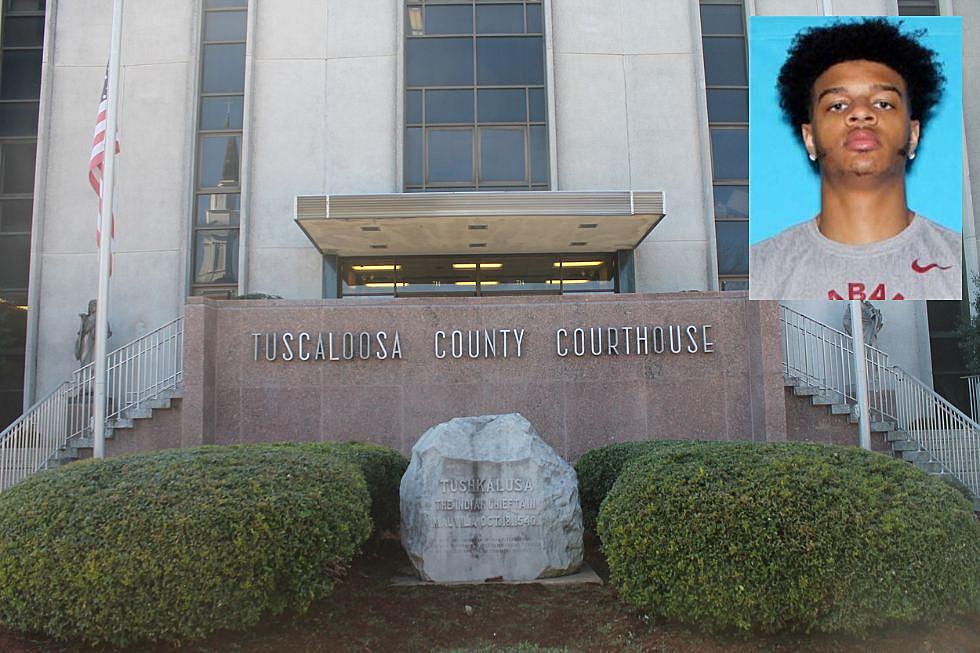
Prosecutors Argue Timeline Disproves Darius Miles’ Self-Defense Claim
Prosecutors say the very timeline of events leading up to a deadly shooting on the Tuscaloosa Strip earlier this year rules out the defendant's claim he was acting in self-defense.
That is the core of a short and simple response that District Attorney Hays Webb, Chief Assistant DA Paula Whitley and Assistant DA Corey Seale filed Wednesday in the capital murder case against former Alabama basketball player Darius Miles.

The Thread has extensively covered the case since its inception in the predawn hours of January 15th, 2023, when 23-year-old Jamea Harris was killed during a shootout on Grace Street near its intersection with University Boulevard on the Strip.
Catch up on our months of coverage here.
As we reported earlier this month, defense attorneys for Miles are asking Circuit Judge Daniel Pruet to dismiss the capital murder case against the former basketball player, who has been jailed without bond since the day after the shooting.
They say Miles saw his lifelong friend Michael Davis in a disagreement with Harris's boyfriend Cedric Johnson, and saw Johnson arm himself with a large-caliber revolver immediately after.
His lawyers said Miles was afraid for his life when he texted his teammate Brandon Miller and asked him to bring a gun Miles legally owned to where they were on the Strip.
A short time later, he gave that handgun to Michael Davis, who traded shots with Cedric Johnson moments later - Jamea Harris was struck and killed in the process. One bullet hit Davis in the shoulder, and another grazed him before everyone fled the scene.
The trio of prosecutors responded to the defense attorney's case for self-defense by arguing that around 10 minutes passed between the moment Miles texted Miller asking for the gun around 1:35 a.m. and the moment the first shot was fired.
"In general, Alabama law endorses the use of deadly physical force by one citizen against another when that individual reasonably apprehends the need to now use such force to counter similar force now being used by another," Webb and the others wrote, adding the emphasis.
Webb says Miles was not in imminent danger, which he said precedent defines as "immediate danger, such as must be immediately met, such as cannot be guarded against by calling for the assistance of others or the protection of the law."
"Testimony demonstrated that Miles had time to walk with, talk with, and provide a gun to the shooter, Michael Davis, after any possible perceived threat," the district attorneys wrote. "In the legal context, self-defense has a very narrow application, and the state endorses the killing by one citizen of another only in the most limited of circumstances. By action and subsequent statement, and to the extent he perceived any threat at all, Miles did not evince any imminent fear for himself or for another. To the contrary, whatever he was thinking, by taking the time to arm another Miles demonstrated an awareness that there was no immediate threat."
"The state of Alabama values human life and has long recognized that such 'life must not be sacrificed under the apprehension of a prospective probable danger even in the near future.'" Webb and the others concluded. "Thus, the defense claim that Miles acted in self-defense and is immune from prosecution fails upon its very nature."
It now falls to Judge Pruet to rule on the motion to dismiss the case against Miles. If he denies the motion and proceedings continue, Pruet has signaled he may be open to reconsidering his earlier rulings to deny bond to Miles and his co-defendant Davis.
For updates on the case as they develop, stay connected to the Tuscaloosa Thread.
Top Stories from the Tuscaloosa Thread (10/16 - 10/23)
Gallery Credit: (Stephen Dethrage | Tuscaloosa Thread)
More From Tuscaloosa Thread









